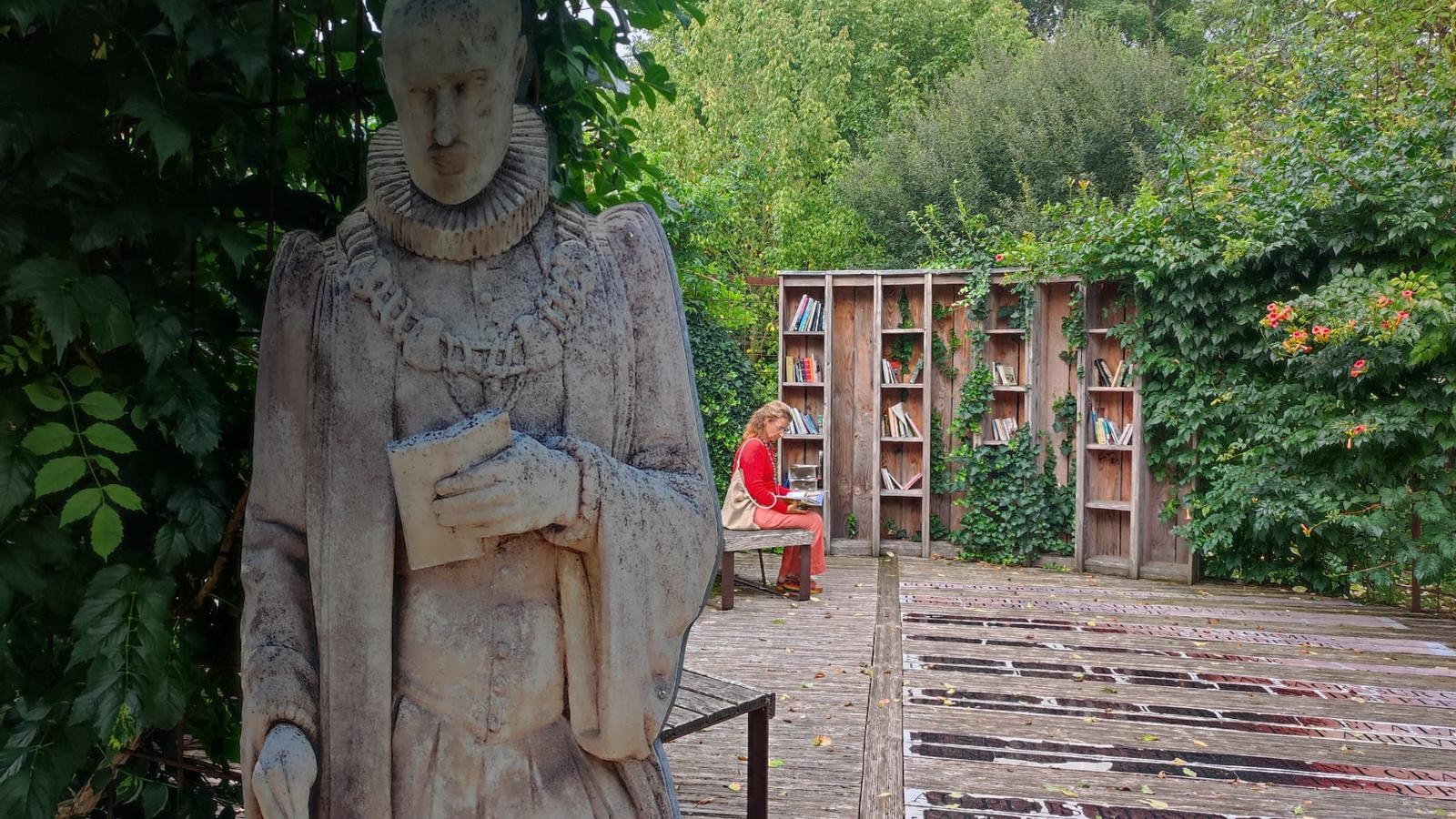

Saint-Michel-de-Montaigne (in Occitan, Sent Miqueu de Montanha) is a tiny rural town, a small pearl of an unquestionably proud Frenchness. The language of Occitan has long since passed away. The national flag is still present on the façade of the town hall, nor is an additional one in the small square opposite, at the foot of the monument to the fallen of the First World War. Did no one attend the Second World War? Perhaps, following the penetrating skepticism of their historical and philosophical patron, they had already become disillusioned with military honors. In this hamlet of the purple Périgord, within the leafy Dordogne, the author of the fabulous poems lives on in the shadow of the author of the fabled poems. Essays. Everything?
I arrive on a Tuesday in September, which apparently is the weekly mobile pizza day. The pizza truck has set up shop at the foot of the road, behind a closed and fenced community center. The grape harvest has already been harvested. Pot-bellied farmers and plump matrons, endowed with a sensual affability, are chatting: while they happily wait for their respective orders, they share, of course, a couple of bottles of wine. They greet us with knowing smiles. A pleasant humidity floats in the air, which soon turns into a summer drizzle, forcing us all to take shelter under the advancing culinary vehicle. The noisy camaraderie increases.
The pizza truck, a true handyman, tells us that he won't be able to serve us the long-awaited Italian sandwich for another hour: he needs his time to properly cook each order. The aromatic warmth of cheese and capers is seductive. I choose the classic Neapolitan. In its travel in ItalySurely Monsieur de Montaigne must have tasted it. He was a traditional man with an open and curious mind, with a tolerance for simple novelties. He would also have accompanied us with a few generous glasses of local wine: "Those who usually condemn wine because it makes some people drunk are wrong. You can only abuse what is good." His descendants, by faith, abuse it. Blessed are they! What else to do on a Tuesday night in a remote village like this?
What "good things" do I see around here? Of the four streets, two are dedicated to Étienne de La Boétie, Montaigne's close friend from his youth who died too early, and to Marie de Gournay, an unexpected disciple, adopted daughter (and something more) of the wise man when he was already old. A neighbor fed up with Montaignism, has placed a plaque in a discreet corner of the front of his house: "Ici le 15 Aout 1575 Michel Eyquem de Montaigne en pissé sur ce mur"[...he peed on this wall]. Indeed, the inventor of the essay, apart from his acute attacks of stone, must also have suffered from urinary urgencies. "Every man carries within him the complete form of the human condition," including physiological needs, of course.
If we have to get scatological, it's worth saying that the blessed inhabitants of this corner of the world almost screwed up in the last presidential election: 52.86% of the votes (111) for Macron and 47.14% (99) for Le Pen. It's funny, you visit an idyllic and mythical place, you socialize with the locals, you eat a pizza made with local products, shawls with the long shadow of your favorite philosopher... and suddenly you realize that half the good people who live there are friendly ultra-national fascists. An utter failure of Montaignian humanism. In the open-air monument-library dedicated to the illustrious ancestor, cobwebs caress the spines of the books. The locals are neither readers nor citizens of the world, as Socrates proclaimed himself and Montaigne applauded him, who was not in the mood to remind us, apparently in vain: "We were not born for our own particular interest, but for the public good." And yet, in the face of the proverbial and endemic anti-political demagoguery (today Trumpist, Le Penist, Orriolist, or Abascalist), he warned us: "It's easy to accuse an administration of being imperfect, because all mortal things are." Perfect.
When I visit the tower where Montaigne conceived and wrote himself the next day, and where he also portrayed all of humanity without modest filters, I am reconciled with the memory of this undulating life partner. Seeing the quotes from his beloved Greco-Latin classics engraved on the coffered ceiling, a shiver runs down my spine. Am I making a fool of myself, perhaps? Things happen as they happen. Or as we make them happen: "Life, in itself, is neither good nor evil: it is the place of good and evil, according to what is granted to them." He, in order to confront good and evil, granted us lucidity and sensitivity. This September 13th marks 433 years since Montaigne died. He was 59, my age.
